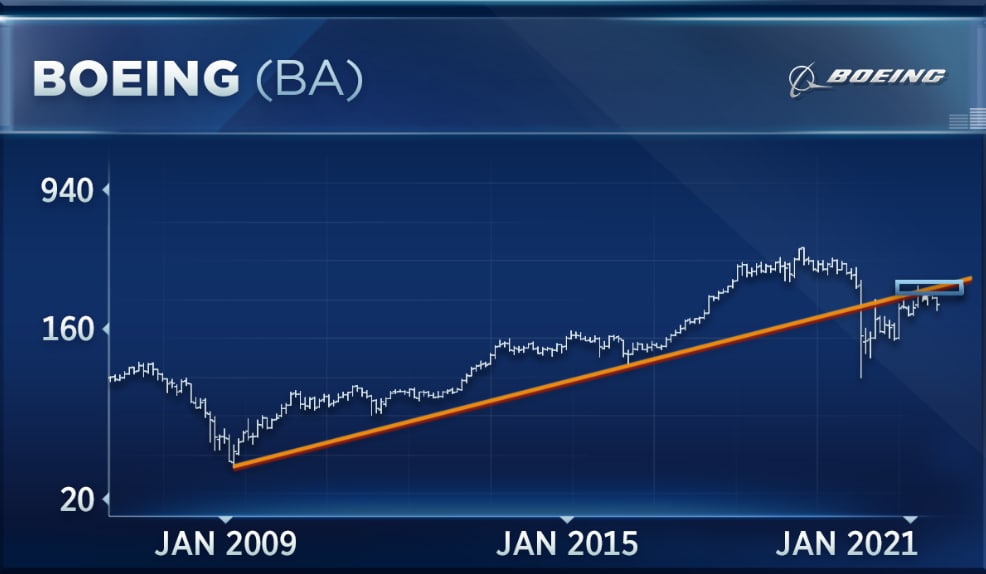One of the worst performing Dow stocks this month is a ‘no touch,’ traders warn

Boeing, one of the worst performing Dow stocks this month, showed signs of life earlier this week after a bullish call from Baird.
Baird analysts reiterated an outperform rating on Wednesday and named it a top pick in the aerospace segment. The firm also said a “healthier demand environment” tied to the reopening economy would allow management to focus on turnaround efforts, including a potential restructuring.
Boeing shares rose more than 2% on Wednesday but remained 7% lower for July. It’s the second-worst performing Dow stock this month, behind Walgreens.
Todd Gordon, managing director of TradingAnalysis.com, used to own the stock. On CNBC’s “Trading Nation,” he explained why he’s now steering clear.
“It’s tough to make an argument to hold this stock,” Gordon said on Wednesday. “If you just look at the chart, it’s lost its uptrend since 2009 and until it can break back above there, about $285, I think it’s is a no touch.”
Boeing closed on Wednesday at $222.54. It has not traded above $285 since March 2020.
Gordon pointed to some of the issues Boeing has been grappling with recently — including production cuts and manufacturing issues with some of its models such as the 787 Dreamliner — as reason to be cautious. The bearish narrative around Boeing stretches back to the grounding of its 737 Max model in 2019 following two fatal crashes.
In the same interview, Joule Financial founder Quint Tatro said he sees the steps Boeing is taking as a positive.
“They seem to be doing everything right. They cut their dividend to protect cash flow, they have a much improved balance sheet and obviously they’re going to participate with the reopening,” Tatro said.
Even so, Tatro said, it’s not enough for him to get involved with Boeing at this point.
“It seems like every time this thing gets some momentum and looks to take flight, there seems to be some headwinds, so it’s a no touch for me here. I think there’s better opportunities out there,” he said.
Keris Lahiff www.cnbc.com
